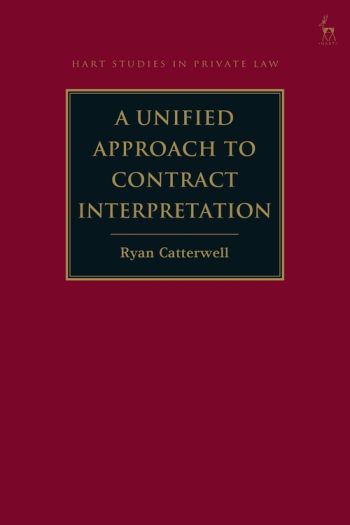We are now closed for the Christmas and New Year period, returning on Monday 5th January 2026. Orders placed during this time will be processed upon our return on 5th January.

Interpretation or construction is central to the operation of contract law. Despite the fundamental role it plays, there have been limited attempts to explain construction in holistic terms. This important book aims to fill that gap by offering a systematic exposition of the iterative process. It also goes further, suggesting practical solutions to disputes regarding questions of interpretation.
The book argues that construction is not simply about establishing what words mean; it is a process through which objective intention is inferred from the choice of words in a contract. The interpretive process involves four steps: formulate the question of interpretation in dispute; explore competing answers to the question; analyse the admissible material supporting each interpretation; and weigh and balance the competing considerations. By so doing, the book offers a simple yet sophisticated framework for interpreting/constructing contracts.